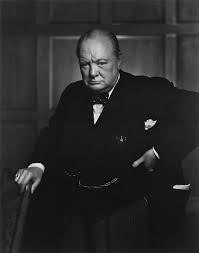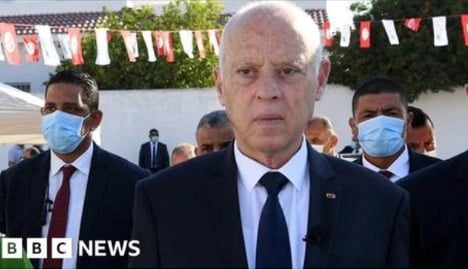Democratic protests in Tunisia gave birth to the Arab Spring in 2011. Therefore, it speaks volumes that Tunisians voted this week to return to a form of government that makes the dictatorship they revolted against back then look positively Jeffersonian.

More than 94 percent of the votes backed the new constitution, which will see sweeping executive powers given to the president and the removal of key checks and balances, including weakening the influence of the country’s parliament and judiciary. …
For several years after the 2011 uprisings, Tunisia was hailed as the only democracy to emerge from the Arab Spring. But the new constitution threatens to unravel the democratic gains in a country now deeply polarised over President Kais Saied’s greatly expanded powers. …
‘We are perhaps witnessing the birth of a new dictator…,’ Nabil Guassoumi, a teacher in Kasserine, situated around 300 km from Tunis, told FRANCE 24.
(France24, July 27, 2022)
Why Tunisians, why?
The reasons for their march back to the future abound. In fact, Tunisians are blaming everything from the Covid-19 pandemic to the food insecurity Russia caused by blockading grain exports as part of its genocidal war against Ukraine.
 But I see no point in commenting on the manifest absurdity in voting for autocracy to ease the birthing pains of democracy…
But I see no point in commenting on the manifest absurdity in voting for autocracy to ease the birthing pains of democracy…
Except I’d be remiss not to note the blow this strikes against Winston Churchill’s famous axiom about democracy being the worst form of government – except for all the others that have been tried. After all, Tunisians have clearly tried democracy and found it so wanting, they have just voted, democratically no less, to return to an even more autocratic form of autocracy than they had before..
I told you so…
As it happens, these Tunisians are just voting like the Egyptians. And, apropos of speaking volumes, the title alone to my blog post marking the 10th anniversary of their Arab Spring does this in spades:
- “The ‘Devil’ Egyptians Knew Was Far Better than this One. But I Warned He Would Be.” October 20, 2021
More to the point, here is how I presaged not just what the Egyptians weathered, but what the Tunisians are now weathering:
With all due respect to the protesters, the issue is not whether Mubarak will go, for he will. (The man is 82 and already looks half dead for Christ’s sake!) Rather, the issue is who will replace him. And it appears they have not given any thought whatsoever to this very critical question. …
The devil the Egyptians know might prove far preferable to the devil they don’t. Just ask the Iranians who got rid of the Mubarak-like Shah in 1979 only to end up with the Ayatollah Khomeini — whose Islamic revolution they’ve regretted (and have longed to overturn) ever since.
(“Army Pledges No Force Against Protesters,” The iPINIONS Journal, February 1, 2011)
My point was simple. To be clear, though, I stood in virtual solidarity with those protesters and could not have been prouder. I just thought they were making rash and untenable demands.
 After all, Mubarak might have been a de-facto dictator, but he was America’s – based on a relationship the US government cultivated with him over nearly 30 years. For me, this meant the Obama administration owed him a duty of loyalty.
After all, Mubarak might have been a de-facto dictator, but he was America’s – based on a relationship the US government cultivated with him over nearly 30 years. For me, this meant the Obama administration owed him a duty of loyalty.
As such, Obama should have acknowledged the protesters legitimate concerns. But he should have admonished them that America would not support removing the democratically elected Mubarak by anything other than an orderly process. He could easily have tempered their revolutionary fervor by championing calls for new presidential elections (without Mubarak), say, within six months.
This would have given Obama time to arrange suitable guarantees for Mubarak’s a life in exile. As it happened, he suffered a disgraceful fate in Egypt. Whereas I was hoping he would not suffer the disgraceful fate the Shah of Iran, another of America’s dictators, suffered in exile.
In any event, I ended my 10th anniversary post with the tragic irony of Egyptians already calling for another Arab Spring to oust their once-celebrated dictator, Abdel Fattah al-Sisi.
There’s clearly a vicious cycle or season of protest afoot. And I’m convinced that it’s only a matter of time before the Tunisians celebrating today will be calling for another Arab Spring to oust this dictator, Kais Saied.
Lesson learned…

But I suspect neither al-Sisi nor Saied will fail to learn what I predicted would be the unwitting lesson of the Arab Spring. Here, coming full circle, is how I presented it in my first commentary on this democratic movement in “Tunisian Revolution – Catching Fire Elsewhere…?” January 28, 2011:
__________
It’s the Iranian precedent that seems to be taking hold elsewhere – as police and security forces are being unsympathetic and unsparing in their crackdown. And in this vein, I am mindful that daily anti-government protests persisted in Iran to no avail for over six months, during which over 70 protesters were killed.
Indeed, I fear the only lesson other de facto dictators will learn from Tunisia is this:
Better to share more of the loot from the national treasury with the security forces who protect you than allow the people you oppress to think that mass protests would be sufficient to oust you too…
__________
Of course, no leader showed that he learned this lesson better than Bashir al-Assad of Syria. This has seen him wage a brutal civil conflict to hold onto power. And, according to the UN Human Rights Office, this has resulted in 306,887 civilians killed between 1 March 2011 and 31 March 2021.